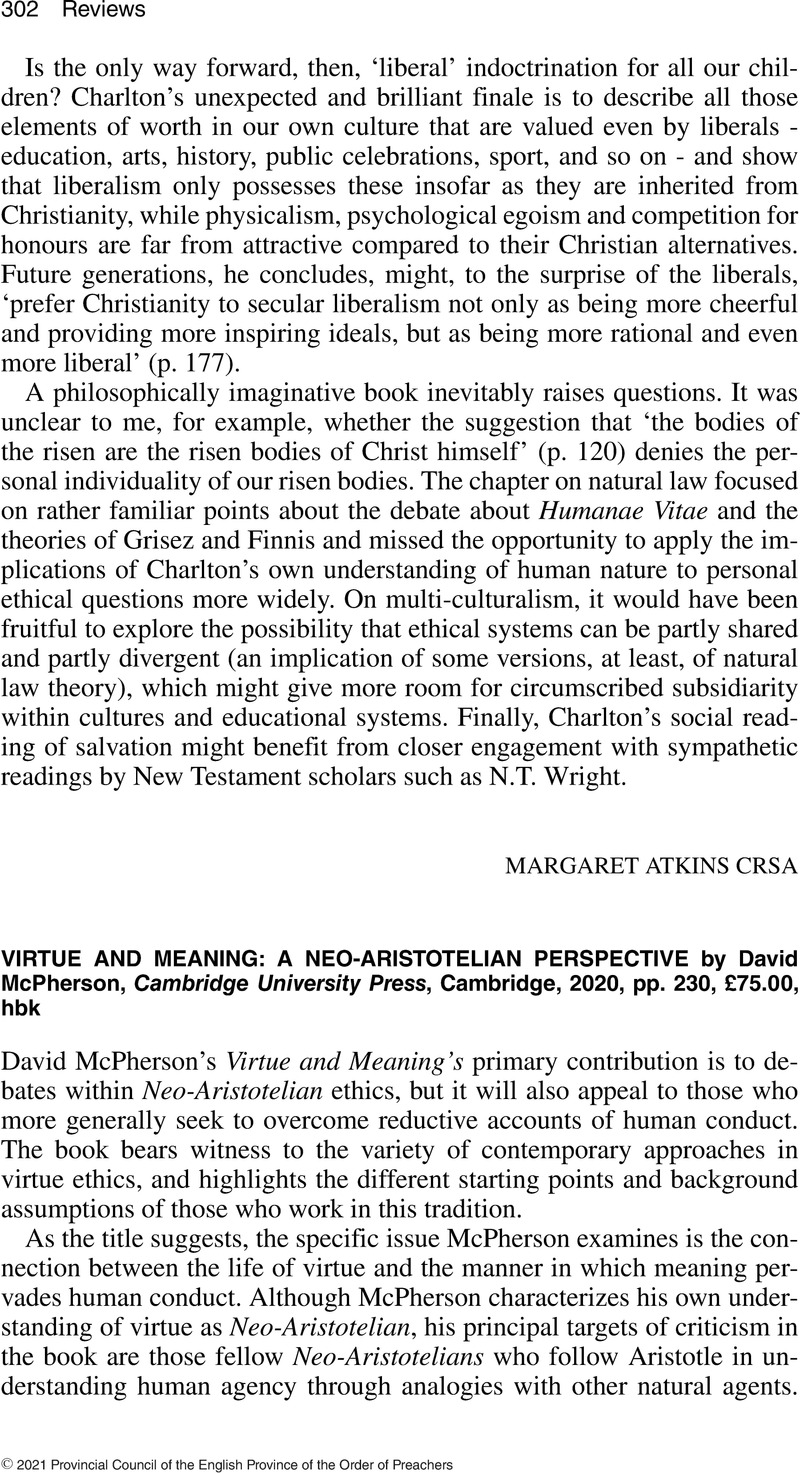No CrossRef data available.
Article contents
Virtue and Meaning: A Neo-Aristotelian Perspective by David McPherson, Cambridge University Press, Cambridge, 2020, pp. 230, £75.00, hbk
Review products
Virtue and Meaning: A Neo-Aristotelian Perspective by David McPherson, Cambridge University Press, Cambridge, 2020, pp. 230, £75.00, hbk
Published online by Cambridge University Press: 01 January 2024
Abstract
An abstract is not available for this content so a preview has been provided. Please use the Get access link above for information on how to access this content.

- Type
- Reviews
- Information
- Copyright
- Copyright © 2021 Provincial Council of the English Province of the Order of Preachers




